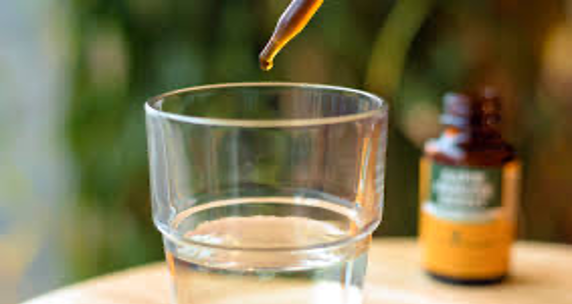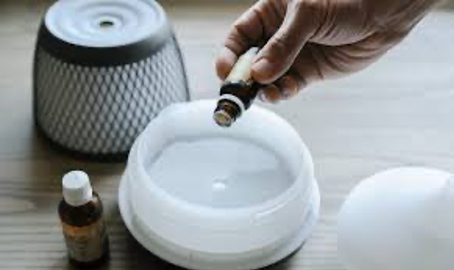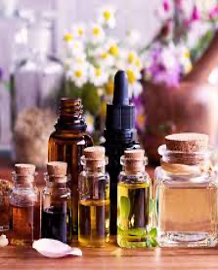
A strong immune system is the key to avoiding all ailments. Human species has survived through history and could fight many diseases because the immune system is designed by nature to fight against harmful elements. The people who had healthy and strong immune systems survived and weak people succumbed to different disease attacks throughout the human history.
This new strain of Corona Virus is unknown, but a healthy body combined with a strong immune system has much better chance to pass it safely.
To avoid exposure and spreading of the virus, personal hygiene such as washing hands with soap regularly, covering face when coughing and sneezing, cleaning any surfaces before touching them and keeping social distancing measures are very important.

The Virus usually originates from a source. The source of each virus could be tracked to a number of different sources and is up for debate and investigation, however once it transfers to a person and through a quick succession of spread to other people, a pandemic is formed and created. They could enter through the nose by breathing the contaminated air (from sneeze and cough droplets of a diseased person in the air) or through contact from touching a contaminated surface.
Viruses have a very simple structure which is a genetic material wrapped in a lipid envelope. They enter the body like a smart thief. They come silently in a way that the immune system is not able to recognise them. If just one tiny virus attaches to a cell in the body, it loses its envelope and releases its genetic material in the cell. When the virus is settled, the cell starts replicating the virus genetic materials without recognising it as a foreign invader. This repetition enters the virus to the next cell and this chain reaction continues to occupy all the tissue cells. At this time the immune system recognises that something wrong is happening and swiftly enters defence mode to act against the toxic cells and the virus materials.
Our body works in a holistic, harmonic way. In the battle of fighting with viruses each organ has a role and all work together to recognise and exert the invader from the body as soon as they can.
A strong immune system recognises this phenomenon much faster. The white blood cells will recognise the virus as a foreigner. They will then make an antibody to fight against them and a complex action executed by different cells provides a condition to kill the invader and the toxic cells. The dead virus and toxic cells are then passed through the bowel or kidney in faeces or urine, before they cause any harm.
The organs that are involved are immune cells in the blood, the digestive system and the liver and gallbladder which expel the toxin produced by the virus and the toxic cells passed through the kidney and bowel. The biggest help comes from the good bacteria in the gut which assists the immune system in fighting against the invaders and helps push them out of the body.

Stress is the worst action for the immune system. Stress hormones act like a poison and require lots of energy from the body, forcing it to keep itself balanced just for dealing with stress. Be calm and let your brain and nervous system work normally. There is a link between your brain, nervous system and gut, which suppresses the act of good bacteria in the gut during a stressful period. You need these bacteria to be active to defend your body. When you are nervous, your body does not have the energy and motivation to fight against the viruses. Be calm, listen to relaxing music, do exercise and meditation. Be informed, but do not spend most of your time listening to the news and reading the media if they make you worry and nervous.

The food we eat is the supply for the immune system. Consuming healthy, fresh and clean whole food which contain lots of nutrition such as minerals, vitamins and good protein provide power for the immune system.
Vegetables and fruits are on the top of the list of immunity boosting foods.
Fruits and vegetables which contain vitamins and minerals include citrus fruits, pawpaw (papaya), kiwi, pineapple, apple, pear, banana and berries.
Onion and garlic have a cleansing property because of the sulphur and enzymes they contain. Potato has potassium. Examples of good sources of nutrition include red capsicum, broccoli, garlic, ginger, turmeric, spinach, celery, parsley, coriander, dill, mint, basil, cabbage, zucchini, carrot and pumpkin.
Legumes such as lentils and chickpeas as well as all kinds of beans are good sources of plant-based proteins which are very helpful.
Nuts such as almonds and walnuts contain good fats and fat-soluble vitamins. Dried fruits such as dates, sultanas and apricots provide a good source of energy for the immune system.
Fermented foods are by far the immune systems best comrades as they contain good gut bacteria. These good bacteria are essential for the immune system to act properly. It is very important to eat fermented foods during the time we need the immune system to work sufficiently. We usually get these good bacteria from environment and food. During a viral outbreak, we increase our use of sanitisers and disinfecting cleaning reagents to kill a potential virus. What we aren’t aware of is that we are also killing the good bacteria. As a result, we need to replace them with probiotics to help the immune system. Fermented foods such as yoghurt, kefir, natural fermented vegetable, pickles in salt water, kimchi and sauerkraut are some of the useful probiotics that our immune system needs.
Raw natural honey has anti-infection and immune boosting properties.
Seeds such as Flax seeds, Sesame seeds, Sunflower seeds, Pumpkinseeds are very nutritious and helpful.
Proteins in fish, chicken and eggs are food for immune cells to regenerate and to stay active.
Boil chicken (with bones), add onion and garlic with a few slices of potato, spice with turmeric, pepper, salt, cinnamon sticks, a rosemary sprig and then garnish with coriander or parsley, squeeze half a lemon or lime before eating. This is one of the best meals to help the immune system.
Eating boiled eggs for breakfast and with your salad is another good source of protein (choose organic or free- range egg if possible).
Cooking style is important. Sauté your vegetable with olive oil and spices, but do not fry. Boiling, grilling or oven cooking keeps the food nutrition stable and absorbable for the body.

Spices are actually dried and powdered herbs which carry the great properties which comes with herbs. Add more cinnamon, turmeric powder, pepper, cumin, garlic powder and chilli to your cooking. (Do not go overboard with hot chilli as it may irritate the throat and lining of your digestion system and weaken their protective layer).

Drink plenty of clean water every day. Don’t let your cells dehydrate, they need to be active. Do not drink iced water as it lowers your body temperature. Remember, the virus likes cold environments. Be sure to drink your water at room temperature or warm. Do not drink iced coffee or any iced drink. Do not eat ice cream.
Drinking hot drinks is one of the best habits during virus outbreaks as viruses do not like warm environments. Drinking hot herbal tea also helps by obtaining the therapeutic effect of herbs.
Green tea, elderberry, cinnamon, peppermint, sage, rosemary, ginger, lemongrass, lemon balm, chamomile, ginseng, echinacea, Calendula, thyme ,liquorice, rooibos, cardamom and fennel are all effective in improving your immune system. You can mix some of them and infuse for 10 minutes in a tea pot. Drink 2 to 3 cups everyday (using the leaves is more effective than tea bags).

There are many medicinal herbs for strengthening the immune system. Astragalus, Andrographis, Echinacea root, golden seal, sage, thyme, elderberry, poke root, ginseng, turmeric, shiitake mushroom, Olive leaf, and many other herbs are quite effective.
The dose of herbs is much higher in herbal liquids. Herbal liquid blends are very effective to increase the ability and function of the immune system. This kind of treatment is highly recommended for more vulnerable people who may have respiratory problems such as asthma, allergies or a history of smoking. Herbal liquid mixtures are also useful for people who have a low immunity or other background diseases during the virus outbreak.
Herbal liquid formulas should be prepared by professionals and should be based on each individual requirement.

Vitamins are another essential. Vitamin Cis a must to wash away viruses from the body. Vitamin D helps all the organs to operate well during the defence. All types of Vitamin B are necessary for the nervous system to cope and stay calm with the stress imposed to the organs from defence and from the panicking environment.
Minerals such as Magnesium, Potassium andZinc are essential as they deplete during the immune defence. People with iron deficiency need to increase their iron to the normal level. Iron is very important as it produces red blood cells which carry oxygen. Low iron means low oxygen for all cells. It is highly recommended to optimise your iron level during the virus outbreak. Iron supplements with natural sources are more absorbable within the intestine and helpful in iron reservation.
Zinc is necessary for immune defence. Most people are unknowingly low in Zinc because Australian agricultural soils are known to be deficient in Zinc.
Magnesium, in the form of Magnesium glaciered or Magnesium citrate produce energy in cells.
Potassium chloride in its natural form and in a very low dose (Celloid) can also help the immune system.
Iron Phosphate in a low dose (Celloid) is used in helping the upper respiratory system.
Celloids should be prescribed by professionals based on individual needs.
Probiotic supplements contain some strains of good gut bacteria that help us digest food, fight harmful bacteria, and regulate the immune system.
Healthy people do not need probiotic supplements and usually get them from food sources, such as yogurt and other fermented foods as well as from the environment. But sometimes an imbalance of microbes occurs, leading to health problems. When the gut becomes unbalanced with unhealthy levels of certain bacteria. Probiotics can help restore the balance. They've been shown to secrete protective substances, which may turn on the immune system and prevent pathogens from taking hold and creating major diseases.
Probiotic supplements are recommended for patients who have inflammatory disease and digestion problems to improve their immune system during the viral out break.
Probiotics should be prescribed by a professional practitioner based on individual requirements.
Tissue salts are minerals in nano dose which provide mineral energies and help the body to stay safe and recover fast from ailments.
Ferr Phos 6x and Kali Mur 6x are supportive for the health of the respiratory system in the body.


Essential oils are biochemically active, aromatic compounds, extracted from plants. They have been used for centuries to scent, disinfect, and heal. The powerful compounds in essential oils originally serve as protection for the plants they come from and these compounds can have similar effect on humans. Their specific immune strengthening properties can protect you from ailments. Essential oils can also reduce stress and improve sleep; both of which are pivotal in helping the immune system. You can use one or a combination of two or three oils at home in a diffuser or an oil burner. The essential oils which are helpful are: tea tree oil, eucalyptus oil, sage oil, frankincense oil, thyme oil, oregano oil, peppermint oil, lavender oil, rosemary oil.
Adding one or more of these targeted essential oils to your health routine can fortify your immune system.

Enjoy your life in a meaningful way. If you are staying at home, exercise in your backyard, use fresh air, open the windows for air ventilation and open the curtains for that extra sunlight. Sun’s heat and ultraviolet rays can kill or inactivate the viruses. Step out of your room or office often and take your time in your backyard or balcony for fresh air and sun light.
Wear proper clothes to keep you warm during cold weather. It is important not to feel cold.
Wash your nose and throat with one teaspoon salt in 200 mL lukewarm water solution, before bed at night and in the morning on rising.
Do gardening and plant some herbs and vegetables. Gardening is pleasant and relaxing.
Practice relaxing exercises and meditation at home. Listen to relaxing music. Do what you like to do at home and did not have time for before. Take up painting or crafts or even a new hobby. It is the best time todo it. Take this time as an opportunity to slow down, and not as a time to panic and stress.
What to avoid:
Avoid eating too much heavy food. Do not eat processed, packaged, fried, sugary or salty food. Do not waste your body’s energy on digesting heavy, sugary and fatty food. Eat light and quality food.
Do not drink soft drinks, energy drinks or too much coffee, and be careful in drinking alcoholic beverages. These kinds of drinks put a burden on your liver and kidneys, at a time that you need them to be ready to defend your body against the virus, and as much as possible, do not drink cold, icy drinks.
Naturocare wishes you a safe health journey to pass this crisis.
Stay safe and healthy
Ashraf Sharafi
Natural therapist (Nutritionist, Naturopath &Herbalist), Medical scientist